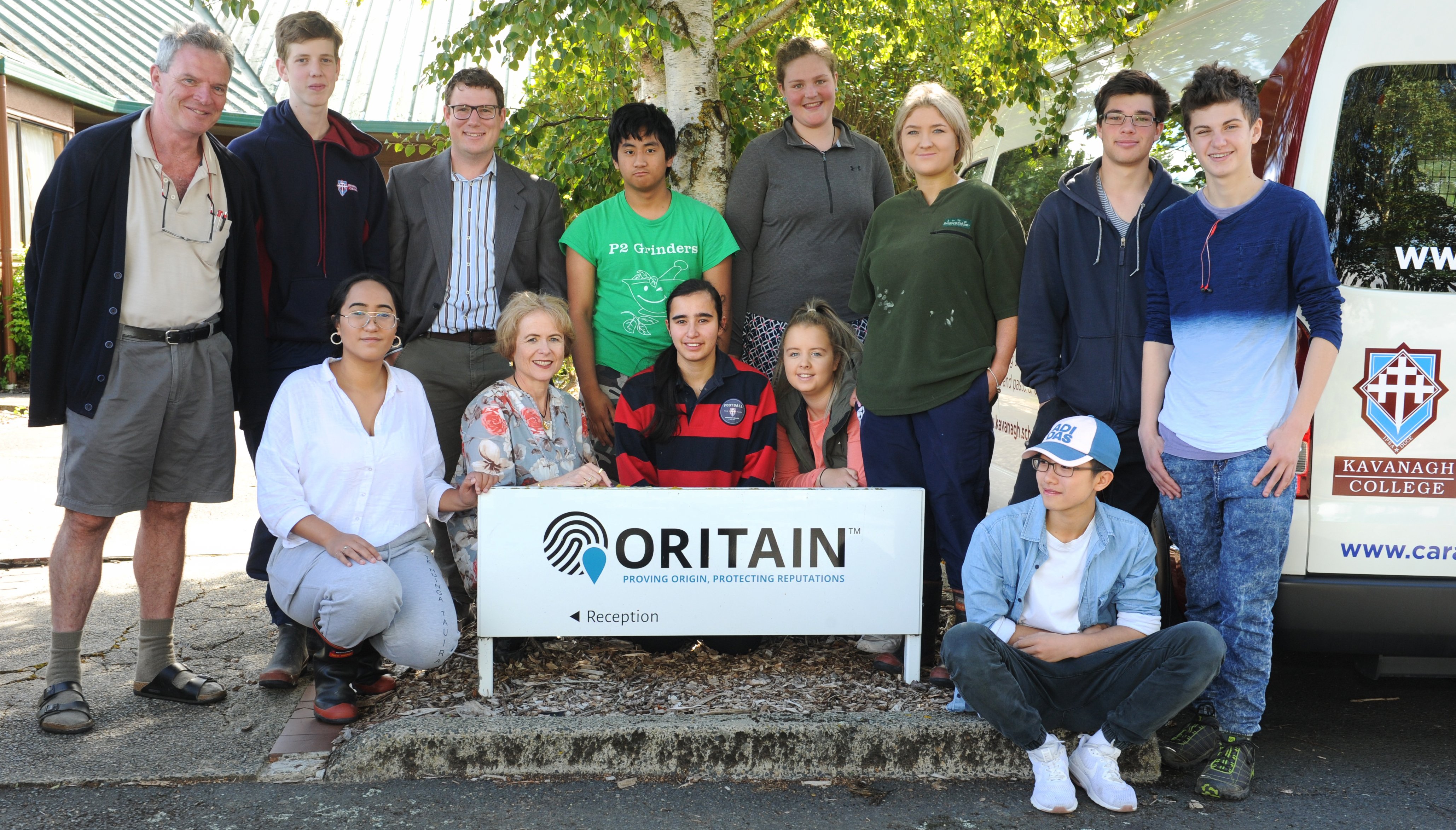
On Friday, pupils from the Dunedin school visited origin verification company Oritain, animal parasite diagnostics company Techion Group and Duncan and Anne-Marie Wells’ dairy farm on the Taieri.
It was a "fantastic" field trip and followed on from the introduction of agribusiness as a subject at NCEA level 2 this year, Ms Armstrong said.
At Oritain, Sam Lind gave an overview of the company and why it had become so important for businesses to be protected from fraud.
"It was fascinating to discover that a product can be traced and verified from anywhere along the supply chain. The 3-D chemical fingerprint image was very impressive," Ms Armstrong said.
At Techion, pupils were invited into the testing laboratory and shown actual sample testing. They were also presented with information about parasites in agriculture.
On the dairy farm, they were given an overview of dairy farming and a tour of the milking shed. They were also invited back to see milking in action.
"The students rated the day 10 out of 10. It was a real winner. All businesses are keen to keep in contact and assist the students if they have any questions," Ms Armstrong said.
Fellow Dunedin schools John McGlashan College and Columba College collaborated as lead schools in setting up a centre of excellence for agricultural science and business, and delivering an agribusiness course across both school campuses.
The initiative was the brainchild of St Paul’s Collegiate School in Hamilton, which joined with agricultural industry partners with the aim of delivering an agribusiness programme to secondary schools throughout New Zealand. There were 10 trial schools throughout New Zealand and it was then rolled out nationally this year.

"In my 20 years’ teaching, I consider that this is the most creative and future-thinking subject that has been developed.
"It ticks all the boxes by enabling students to develop skills and knowledge in meaningful contexts that will lead them to well-paid positions," she said.
Pupils would learn about topics such as plant science, agri-management, finance, digital technologies, agri-innovations, agri-marketing, primary production processes, adding value and international trade.
Schools had some flexibility and were able to develop a programme that best fitted the needs of their pupils.
For example, the traditional subjects of chemistry, biology, economics and accounting could still be included in a course.
Agribusiness had a science and/or business focus, so pupils were able to keep all pathways open, she said.
"Traditionally, high-achieving students have viewed the health science, engineering and law pathways as their preferred option for tertiary study.
"However, agribusiness is the new kid on the block that enables students to graduate with an excellent academic record and excellent job prospects.
"In the past, secondary school subjects with a horticulture and agriculture focus have sometimes been viewed as suitable for less able students. However, we are now in a new era and agribusiness supersedes this view," she said.
It was refreshing to offer pupils an alternative pathway that would enable them to fill a major skill shortage across the agribusiness sector.
The course exposed pupils to a wide range of skills required and opportunities available up to and beyond the farm gate.
There had been a "tremendous" response from both the agribusiness and school communities.
"People who are experts in their fields have kindly offered to share their expertise with the students and this keeps everything real," she said.
There were plans to run a mentoring programme for pupils and work in partnership with an agribusiness in the future.It was expected the course would expand substantially once pupils and parents realised the scope of careers on offer in the sector.














